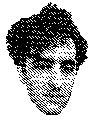|
WHEN NATHAN ENGLANDER published his first collection of short stories (For the Relief of Unbearable Urges), in 1999, he drew comparisons to Roth, Bellow, and Joyce. Here was a young (age: 29) unknown, a former yeshiva-educated Orthodox Jew who had abandoned his religious training even while mining it with literary flair, and he had reportedly snared a rare six-figure advance. Fans salivated and clamored for a novel; eight years later, The Ministry of Special Cases is worth the wait. Set in 1976 during Argentina’s “Dirty War,” the novel tells of one family’s Kafkaesque nightmare, through Englander’s unique combination of pathos, humor, and intelligence. Victoria Lautman chatted with Englander, who spoke by phone from his home in New York.
|
Q: After writing short stories, was it tricky to expand your talents into a novel? Is that what took you eight years?
A: There’s a huge difference, and yes, switching to a novel was a real, full education. I love the process-it’s what I do and I’m obsessed with it-but getting to know these characters was torturously brutal throughout. I guess I’m nothing if not the “Tortured Writer Guy,” and although I love every second of it, I was driving my friends crazy, pulling my hair out in the middle of the night, throwing pages away, all to find and work on these characters until they, hopefully, became real, living individuals.
Q: But, eight years?
A: Yeah, that’s just the way I work, and why it takes me so long. It’s important to me that I find the right story. And what you don’t see is what I wrote over the past decade and then let fall away. Everything I write is always twice or ten times as long and has to be worked down. This story takes place over about six weeks in Argentina, but it originally covered four generations over a hundred years and many continents. What is now the first ten pages was at one point a hundred and fifty pages!
Q: The main character, Kaddish Poznan, is paid to deface gravestones in a Jewish cemetery. And later he basically defaces himself by getting a nose job. Identity is at the core of the story, but it can also be erased by the government in a second.
A: I’m obviously obsessed with issues of identity and community and obligations to the community. But more and more, it became important to me that this was a story about a family, and the bigger stories-the “Dirty War,” for instance-are told through that family.
Q: Your own identity became quite a hook itself during publicity for your first book. Did that yeshiva boy–turned–best-selling author angle ever just bug you?
A: I wish I had a hook now! What can I answer when people ask what I’ve been doing for the past decade? “Sitting in my room!?” With the last book, everything was about leading up to that point; everything was a huge stage of development. But since then I’ve just been writing, and though there have been ten million personal dramas in my life, yeshiva boy just seems like a long time ago.
Q: You can always talk about your huge advance . . .
A: If only the gossip were true. But people really do want to know about the money in such a weird way. So here’s the formula: I was totally poor, I did really well with literary short fiction about Hasidism (that was incredible), and then in a crazy manner I took every last penny and used it to write this book. Now I’m poor again, and we’ll see what happens in the next few weeks. I only get paid once a decade, and my mom can only buy so many copies.
Critical Mass
Noteworthy new releases for June
|
Filibuster to Delay a Kiss
(Random House, $19.95)
Wicker Park–born and Lake Bluff– raised poet Courtney Queeney pens an honest coming-of-age début collection: “She mothered the disorder in me, / this difficulty getting out of bed / and dressing like a real human adult, / trying not to be her daughter: / looks like laughter, / rhymes with slaughter.”
|
Writing in an Age of Silence
(Verso, $22.95)
A meditative memoir by local novelist Sara Paretsky, who weaves thoughts on political and literary dissent with the backstory of creating her gender-barrier breaking detective, V. I. Warshawski.
|
Throw Like a Girl
(Simon & Schuster, $13)
A David Sedaris–endorsed compilation of short stories from Jean Thompson that center on the poignant strength, hope, anger, and humor of female protagonists; catch the Urbana writer at the Printers Row Book Fair on Saturday, June 9th.
|
Comedy by the Numbers
(McSweeney’s, $14)
What started as a promotional pamphlet for the Edinburgh Festival Fringe has grown into an alphabetized list of 169 ways to be funny (numbers 96 and 158, respectively: “pee pee joke” and “ugly people”). From Annoyance Theatre’s Gary Rudoren and Upright Citizens Brigade’s Eric Hoffman, writers who are both, fortunately, funny.
Photography: Lautman – Marc Hauser, Englander – Elena Seibert








